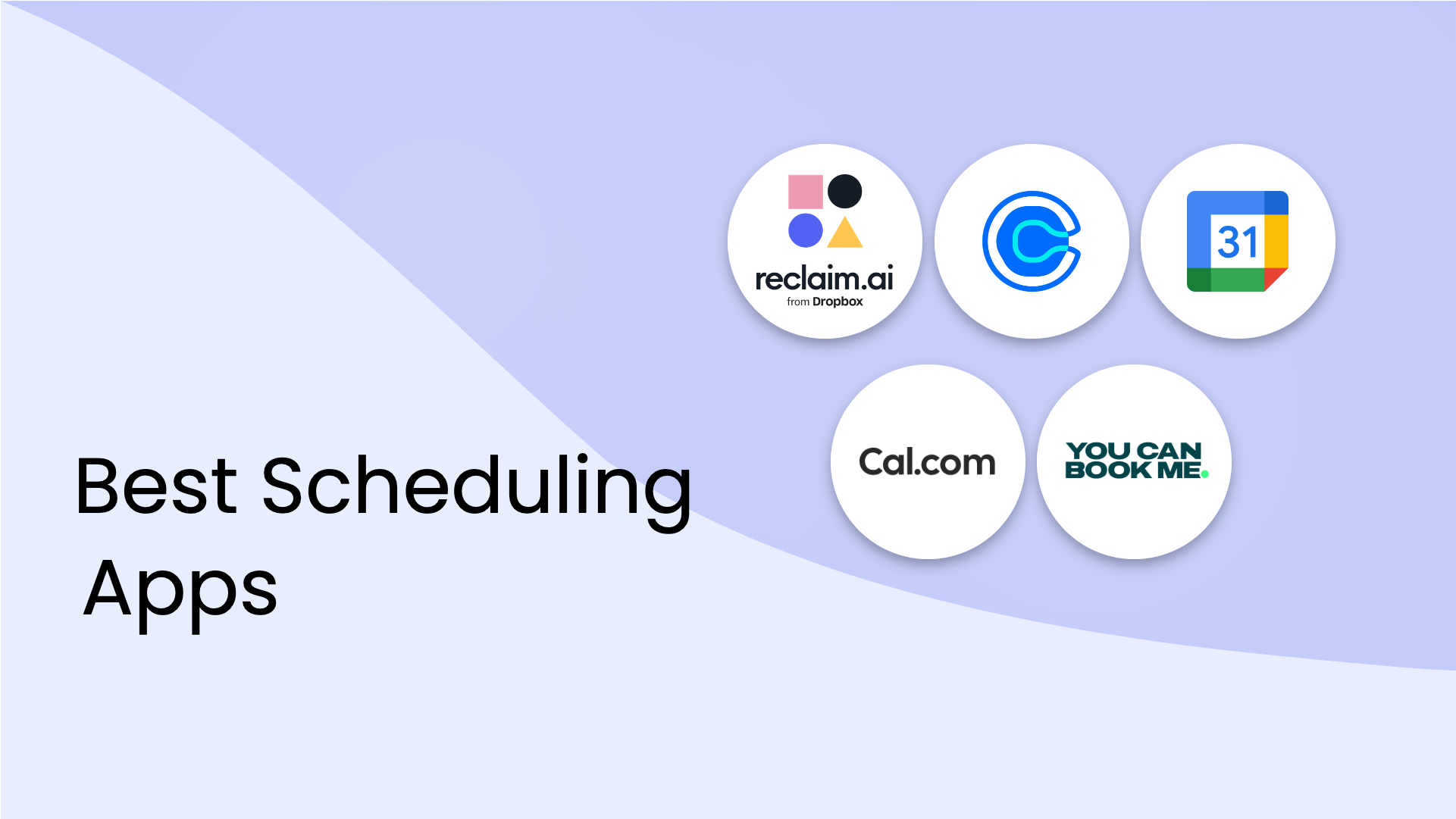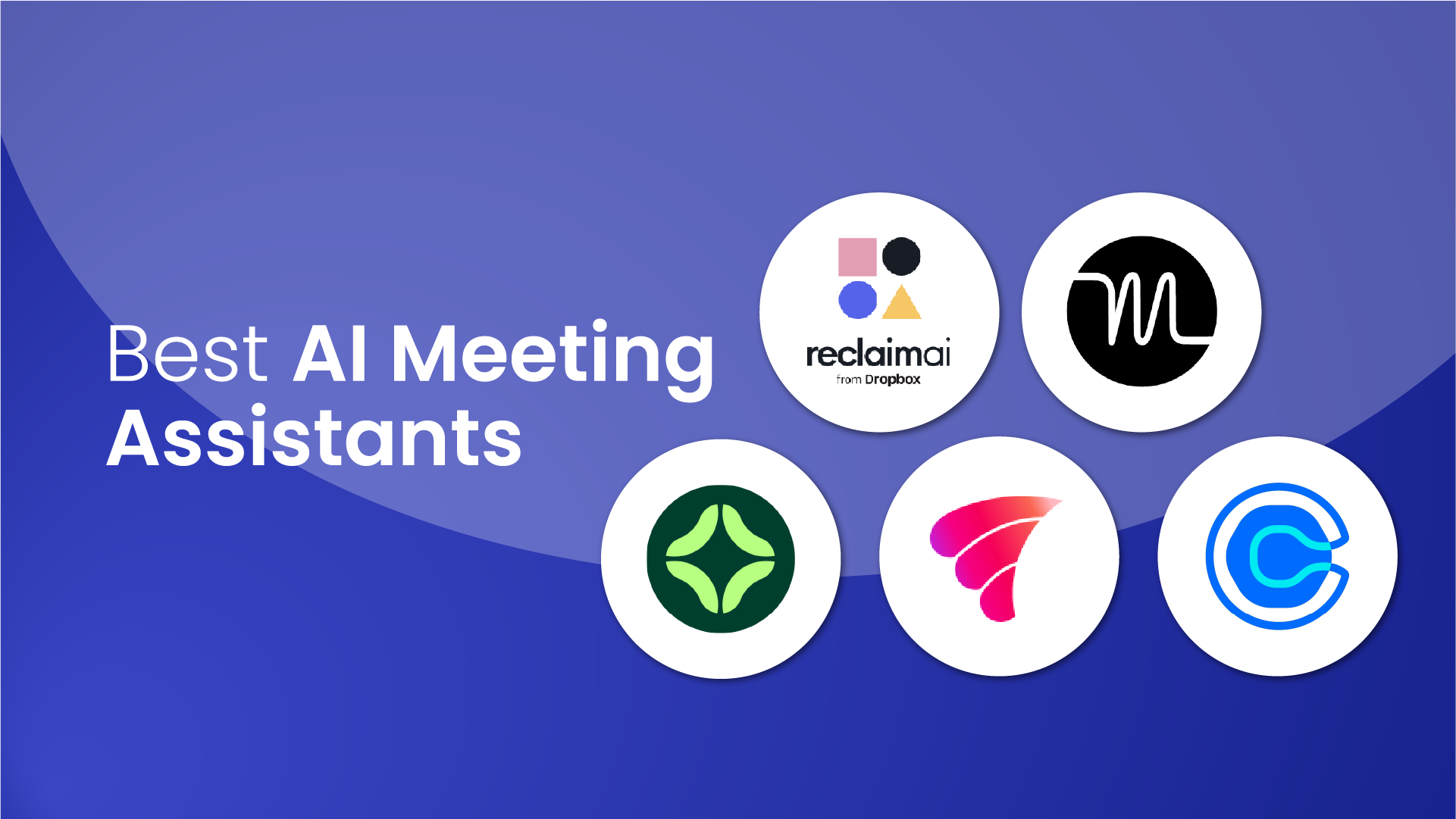Ever dreamed of being the ultimate right-hand to a high-level executive? It's not just about fetching coffee – top executive assistants (EAs) are the backbone of successful organizations. But how do you land this important gig?
Whether you're just starting out or looking to climb the ladder, there are important skills you'll need to master to be really effective in an executive assistant role. In this article, we'll reveal the six essential executive assistant skills hiring managers look for in top-tier candidates to elevate your profile and land that dream position.
Core responsibilities of an executive assistant
Today's executive assistants are the dynamic force behind efficient leadership. As a trusted partner and personal assistant to executives, an effective executive assistant wears many hats to keep operations running smoothly. Their diverse responsibilities include:
- Calendar management - Expertly manage complex schedules, coordinating meetings, appointments, and events.
- Communication - Handle phone calls, emails, and correspondence to provide clear and effective communication at all levels.
- Meeting preparation - Prepare agendas, gather materials, and take detailed minutes to keep meetings running smoothly.
- Travel arrangements - Book flights, hotels, and transport, prepare travel itineraries.
- Document preparation - Craft reports, presentations, and spreadsheets that are polished, informative, and impactful.
- Project management - Track project timelines, monitor progress, and keep stakeholders informed of key developments.
- Manage expenses - Process expense reports, track budgets, manage payments with a corporate credit card, and confirm financial compliance.
- Event planning - Organize and coordinate company events and meetings.
- Stakeholder interaction - Serves as a point of contact between executives and clients or colleagues.
Learn more about what an EA does on a day-to-day basis here.
Which key skills do hiring managers look for in an executive assistant?
Today's EAs are far more than administrative assistants – they're strategic partners, problem solvers, and tech-savvy professionals. Hiring managers seek well-rounded individuals with a unique blend of skills.
Hard skills:
- Navigate complex office software, digital tools, and communication platforms with ease.
- Master complex schedules, calendars, and travel arrangements across multiple time zones.
- Analyze information, generate reports, and provide insights to support executive decisions.
Soft skills:
- Adapt communication styles to diverse audiences for clear and effective dialogue.
- Build rapport with stakeholders, colleagues, and clients.
- Anticipate challenges, troubleshoot issues, and develop creative solutions independently.
- Maintain confidentiality, handle sensitive information, and navigate delicate situations with tact.
- Thrive in fast-paced environments, embrace change, and prioritize multiple tasks with grace under pressure.
The most sought-after EAs possess a potent combination of commercial acumen, exceptional organizational skills, interpersonal finesse, and unwavering adaptability. They smoothly blend technical expertise with emotional intelligence, so every task is executed with precision, professionalism, and adaptability.
Here are 6 of the top executive assistant skills required for the role of an executive assistant.
1. Administrative skills
Behind every successful executive is an EA who masters the art of interpersonal communication and administrative support. These skills are the backbone of efficient workflows, positive team dynamics, and a thriving work environment.
Skills needed: Building relationships, teamwork, empathy, and diplomacy, handling sensitive information and administrative tasks.
How to develop this skill:
- Engage & collaborate: Actively participate in team projects, volunteer for cross-functional initiatives, and seek opportunities to connect with colleagues.
- Step up & lead: Take on leadership roles in team projects or volunteer activities, honing your communication and decision-making abilities.
- Seek & embrace feedback: Regularly request feedback on your interpersonal interactions, identifying areas for growth and improvement.
- Stay informed: Familiarize yourself with data protection laws and company policies to guarantee ethical and responsible information handling.
2. Communication skills
As an EA, you're the communication hub of the organization – a master translator between executives, clients, colleagues, and external partners.
Skills needed: Clear verbal and written communication, active listening, interpersonal skills, professional correspondence.
How to develop this skill:
- Invest in learning: Enroll in business communication courses or workshops to refine your skills and learn the latest best practices.
- Speak up & stand out: Join a public speaking group or Toastmasters to practice articulating your thoughts in front of an audience, honing your verbal communication skills.
- Write, review, repeat: Practice writing emails, reports, and other business documents, seeking feedback from colleagues or mentors.
- Embrace technology: Leverage communication tools like Slack, Zoom, and Microsoft Teams to collaborate effectively and stay connected.
- Be present & engaged: Actively participate in meetings, listen attentively, and contribute thoughtful ideas to demonstrate your communication prowess with internal and external stakeholders.
3. Time management skills
Time is the most valuable currency for executives, and as an EA, you're their timekeeper, orchestrating schedules, deadlines, and priorities with finesse.
Skills needed: Prioritising tasks, scheduling meetings, managing calendars.
How to develop this skill:
- Embrace technology: Leverage digital calendars (like Google Calendar or Outlook), project management tools (like Asana or Trello), and AI-powered scheduling assistants (like Reclaim.ai) to simplify your workflow.
- Master to-do lists: Create detailed to-do lists, breaking down complex tasks into smaller, manageable steps.
- Start time blocking: Allocate specific blocks of time for different types of work, minimizing distractions and maximizing focus.
- Continuously improve: Regularly assess your time management strategies, identify bottlenecks, and experiment with new techniques to optimize your efficiency.
4. Event planning skills
From board meetings to company-wide celebrations, events are a powerful tool for building relationships, fostering collaboration, and showcasing your organization's brand. For great executive assistants, event planning prowess can leave a lasting impression, creating memorable experiences that achieve strategic objectives and strengthen professional connections.
Skills needed: Setting objectives, creating detailed plans, scheduling, budgeting, vendor management, managing event logistics.
How to develop this skill:
- Use event planning software: Use event planning software like Cvent or Eventbrite to simplify registration, communication, and data management.
- Master checklists: Develop comprehensive checklists so no detail is overlooked, from securing permits to arranging transportation.
- Gain experience with smaller events: Start by planning small events or volunteering your skills for community gatherings to gain hands-on experience.
- Build financial skills: Take courses in budgeting and finance to understand the financial implications of event planning and make informed decisions.
- Become a spreadsheet master: Leverage spreadsheet tools like Excel or Google Sheets to track budgets, expenses, and attendee data.
- Practice budget management: Start by managing budgets for minor events, gradually increasing responsibility as you gain experience and confidence.
5. Problem solving skills
When the unexpected arises (and it inevitably will!), executives turn to their EAs to quickly assess the situation, identify solutions, and keep things moving forward. This requires a sharp problem-solving mind, the ability to think on your feet, and the confidence to make sound decisions under pressure.
Skills needed: Analysing problems, thinking critically, and making decisions quickly and effectively.
How to develop this skill:
- Practice with puzzles: Engage in brain teasers, riddles, and logic puzzles to flex your analytical muscles.
- Analyze case studies: Review real-world case studies to understand how others have approached complex problems.
- Participate in simulations: Take part in scenario-based learning exercises that simulate workplace challenges.
- Seek feedback: After resolving a problem, reflect on the process and seek feedback from colleagues or mentors to identify areas for improvement.
- Take courses or workshops: Enroll in critical thinking or decision-making courses to develop structured problem-solving frameworks.
6. Technology proficiency skills
Technological fluency is a must-have for any aspiring EA. Mastering a variety of software and tools not only streamlines your workflow but also positions you as a valuable asset who can leverage technology to drive efficiency and innovation.
Skills needed: Proficiency with Microsoft Office Suite (Word, Excel, PowerPoint), Google Workspace, Dropbox, project management platforms, email platforms, and video conferencing tools.
How to develop this skill:
- Invest in learning: Take online courses or certifications in specific software or tools you want to master. Many platforms offer free or affordable training resources.
- Explore tutorials & guides: Use the abundance of online tutorials, guides, and how-to videos available for most software platforms.
- Practice makes perfect: Set aside dedicated time to practice using new software and tools, and experimenting with different features and functionalities.
- Seek guidance: Ask colleagues, mentors, or IT professionals for assistance or advice when you encounter challenges.
- Stay current: Keep up with the latest tech trends and developments in your industry, exploring new tools and platforms that can enhance your productivity and effectiveness.
How to highlight executive assistant skills on your resume
Your resume is your first impression, your chance to demonstrate why you're the ideal candidate for that coveted EA position. It's not just about listing skills – it's about strategically showcasing your experience, accomplishments, and value proposition.
Here's how to create a resume that grabs attention and gets you noticed:
- Clarity is key: Organize your resume with clear headings (e.g., "Summary," "Experience," "Skills," "Education") and use a clean, easy-to-read font.
- Quantify your impact: Go beyond listing duties. Instead, highlight measurable results and achievements that demonstrate your value (e.g., "Streamlined scheduling process, saving executives 10 hours per week").
- Keep it brief: Keep descriptions concise, focusing on the most relevant and impressive aspects of your experience.
- Tailor to the role: Carefully read the job description and tailor your resume to match, using keywords and phrases that align with the employer's needs.
- Leverage action verbs: Start each bullet point with strong action verbs that showcase your initiative and accomplishments (e.g., "Led," "Spearheaded," "Orchestrated," "Optimized").
- Proofread with precision: Ensure your resume is free of errors, typos, and inconsistencies. Consider asking a colleague or mentor to review it for you.
Enhance your CV by working with a specialist Executive Assistant recruitment agency such as Tyler Griffen Recruitment.
Resume example 1:
- Spearheaded the planning and execution of annual company events, exceeding attendance targets by 15% with over 230 participants.
- Managed all event logistics, from venue selection and vendor negotiation to onsite coordination, resulting in a smooth and highly-rated experience.
- Maintained meticulous financial records for events, providing 100% accuracy in budget tracking and expense reporting.
- Drafted and proofread executive correspondence, guaranteeing polished and error-free communication that reflected positively on the organization.
Resume example 2:
- Leveraged advanced Excel skills to analyze complex datasets, generating insightful reports that informed executive decision-making.
- Developed engaging PowerPoint presentations that effectively communicated key messages to diverse audiences, including senior leadership and external stakeholders.
- Implemented Trello for streamlined project management, resulting in a 15% reduction in project completion times and improved team collaboration.
Quick tips for developing your executive assistant skills
The world of Executive Assistants is constantly evolving, so investing in your professional development is key to staying ahead of the curve and reaching your full potential. Here are actionable steps to continuously expand your skillset and become a great executive assistant:
- Targeted training: Enroll in courses or certifications that align with your career goals and areas of interest. Consider pursuing programs in project management, finance, advanced IT skills, leadership, or communication.
- On-the-job learning: Don't shy away from taking on new challenges or responsibilities at work. Seek out opportunities to learn from experienced colleagues and mentors.
- Seek & embrace feedback: Actively ask for feedback from supervisors, colleagues, and even executives to gain valuable insights into your strengths and areas for development.
- Network & connect: Join professional organizations like the International Association of Administrative Professionals (IAAP) to network with peers, access resources, and stay informed about industry trends.
- Harness online resources: Use online learning platforms like Coursera, LinkedIn Learning, Udemy, or Skillshare to access a wealth of tutorials, courses, and expert-led training on a variety of EA skills.
- Attend industry events: Participate in workshops, seminars, and conferences to learn from industry leaders, discover new tools and technologies, and stay up-to-date on best practices.
- Self-study & exploration: Dedicate time each week to independent learning. Read industry publications, listen to podcasts, watch webinars, and explore new software or tools that can enhance your efficiency and effectiveness.
Unlocking success as an executive assistant
The demanding yet rewarding executive assistant role requires a unique blend of skills, adaptability, and unwavering professionalism. Master these qualities, and you'll not only excel in your career – but also become a trusted partner to your executive.
But don't just work harder, work smarter. Tools like Reclaim.ai, an AI-powered scheduling assistant, automate tasks like calendar management, prioritizing tasks, and balancing workloads across a team. This frees up your valuable time to focus on strategic initiatives, problem-solving, and relationship-building—the hallmarks of a truly effective EA.










.png)



















